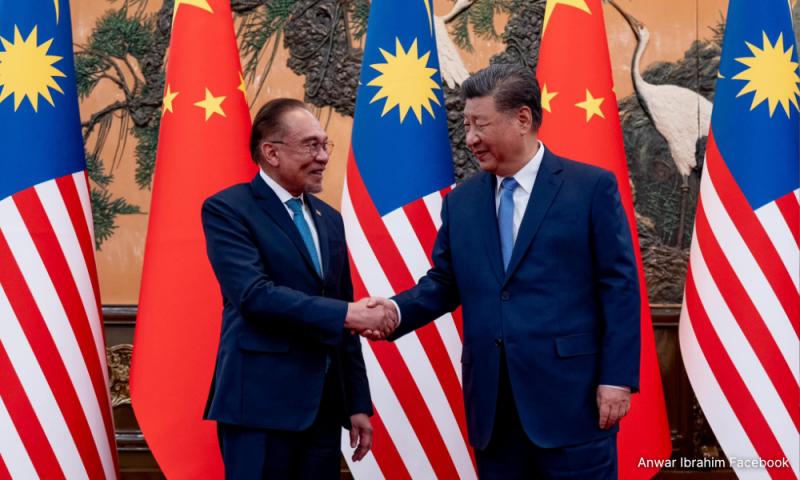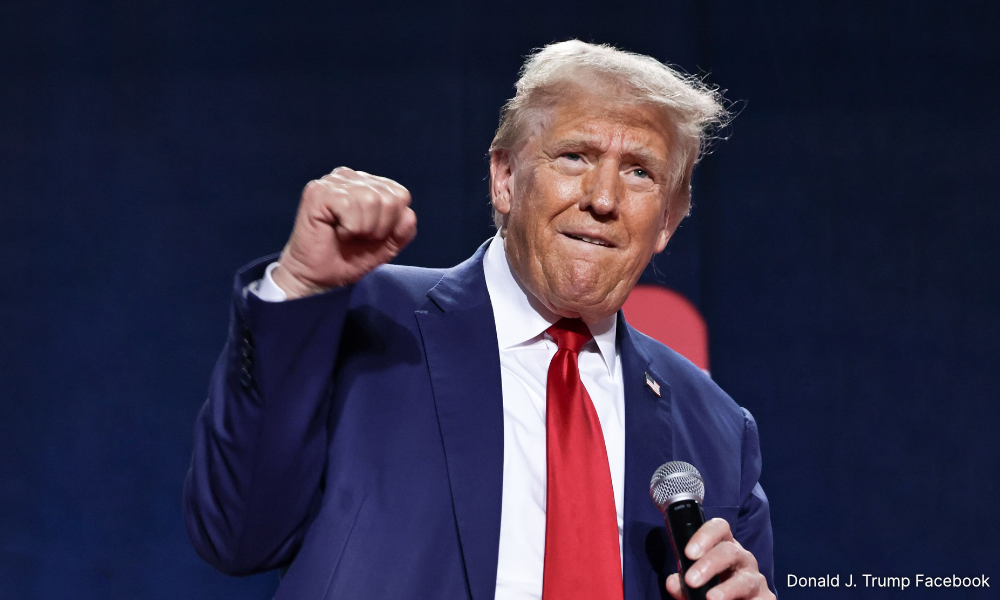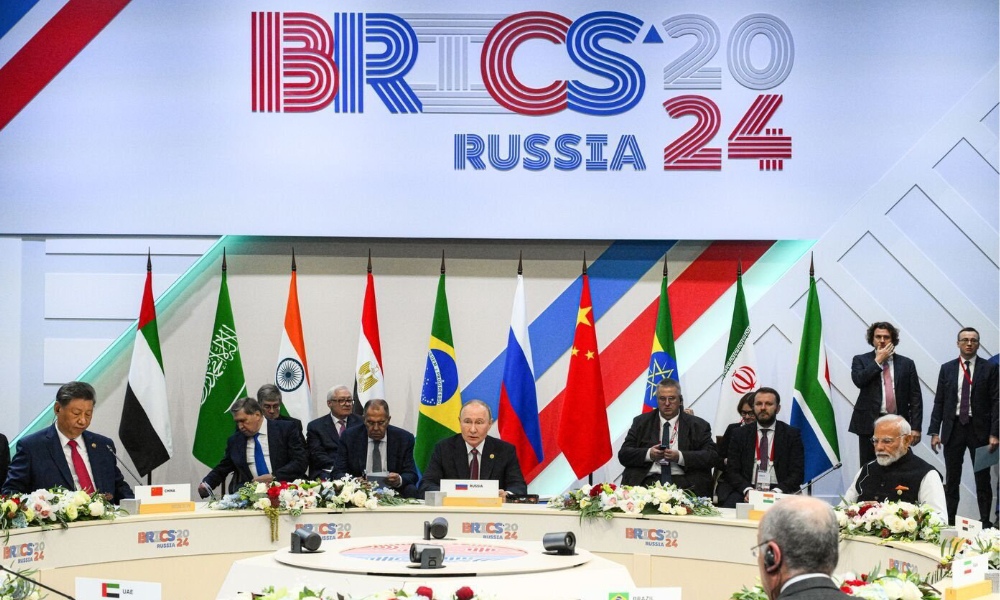
Tuan Muda
Published: Nov 14, 2024 9:30 AM
COMMENT | Those familiar with the rules of engagement know the principle: “Do not fire until fired upon.” But in today’s volatile geopolitical landscape, waiting too long can mean losing critical ground.
With Maga’s “America First” doctrine scoring an early goal through Donald Trump’s political comeback, the Brics alliance led by China President Xi Jinping and Russia President Vladimir Putin is pressing to equalise by creating a multipolar world.
With two years into his administration and halfway through his first term, Prime Minister Anwar Ibrahim faces a critical challenge. Brics now stands in a one-on-one with the US, and Malaysia risks falling behind if it doesn’t navigate these global shifts carefully.
Malaysia’s recent decision to join Brics marks a significant shift under Anwar’s leadership. Malaysians now have skin in the game. But can Anwar inspire Malaysians toward a “Malaysian First” doctrine? Can he rally Bangsa Malaysia to foster innovation and technology that sets the nation apart on the global stage?
‘America First’ a prequel to ‘Bangsa Malaysia’
In 2017, Trump introduced his “America First” doctrine at the Apec summit in Vietnam, urging nations to prioritise “home” over global obligations.

“Home is good,” he said, “and we all must protect our homes and way of life.”
For the first time, a US president acknowledged that Americans shouldn’t impose their trade preferences - nor should China - on Southeast Asia.
Trump’s strategy emphasised tariffs on foreign goods, the reshoring of American manufacturing, and a new energy independence approach, including the expansion of US natural gas exports.
This strategy, by putting pressure on global energy prices, sought to boost American competitiveness while challenging oil-dependent economies, including Malaysia, to adapt to an era of lower energy prices.
Brics’ multipolar push
China and Russia’s joint venture, Brics, seeks to establish a world order that reduces dependency on the US dollar through “de-dollarisation.”

This movement has gained traction, particularly in light of US President Joe Biden’s banking sanctions, which spurred Brics to develop regional trade networks, alternative payment systems, and partnerships in education and technology.
For Malaysia, joining Brics offers an opportunity to diversify economic ties and participate in initiatives that could shield it from dollar fluctuations.
However, it also raises questions about how Malaysia will maintain access to the educational, technological, and financial advantages that Western alliances currently provide.
Picking a side
One of Anwar’s immediate challenges is the chronic decline in the value of the ringgit, complicating Malaysia’s effort to balance affiliations with both Brics and the US.
Petroleum subsidies have contributed to a “shoot oneself in the foot” scenario for Malaysia’s currency since the end of the Bretton Woods system in 1972, and the government’s limited ability to increase taxation constrains its spending capacity for development.
Malaysia’s economic path now contrasts with that of Singapore, which has fully embraced the US as a financial and technology partner, anchoring itself within Western systems. Malaysia’s approach signals an attempt to forge an independent path, yet one that requires a careful balance.
A hybrid strategy could allow Malaysia to benefit from regional investments within Brics while keeping pathways open to US technology and educational opportunities, potentially through close collaboration with Singapore as a bridge.
Malaysia has now put itself in the game, and Anwar’s decisions will shape the nation’s future role in the region.
The score remains Maga 1, Brics 0, but the game is still underway. As the clock ticks for Anwar and Malaysians, there is no time to waste.
Published: Nov 14, 2024 9:30 AM
COMMENT | Those familiar with the rules of engagement know the principle: “Do not fire until fired upon.” But in today’s volatile geopolitical landscape, waiting too long can mean losing critical ground.
With Maga’s “America First” doctrine scoring an early goal through Donald Trump’s political comeback, the Brics alliance led by China President Xi Jinping and Russia President Vladimir Putin is pressing to equalise by creating a multipolar world.
With two years into his administration and halfway through his first term, Prime Minister Anwar Ibrahim faces a critical challenge. Brics now stands in a one-on-one with the US, and Malaysia risks falling behind if it doesn’t navigate these global shifts carefully.
Malaysia’s recent decision to join Brics marks a significant shift under Anwar’s leadership. Malaysians now have skin in the game. But can Anwar inspire Malaysians toward a “Malaysian First” doctrine? Can he rally Bangsa Malaysia to foster innovation and technology that sets the nation apart on the global stage?
‘America First’ a prequel to ‘Bangsa Malaysia’
In 2017, Trump introduced his “America First” doctrine at the Apec summit in Vietnam, urging nations to prioritise “home” over global obligations.

“Home is good,” he said, “and we all must protect our homes and way of life.”
For the first time, a US president acknowledged that Americans shouldn’t impose their trade preferences - nor should China - on Southeast Asia.
Trump’s strategy emphasised tariffs on foreign goods, the reshoring of American manufacturing, and a new energy independence approach, including the expansion of US natural gas exports.
This strategy, by putting pressure on global energy prices, sought to boost American competitiveness while challenging oil-dependent economies, including Malaysia, to adapt to an era of lower energy prices.
Brics’ multipolar push
China and Russia’s joint venture, Brics, seeks to establish a world order that reduces dependency on the US dollar through “de-dollarisation.”

This movement has gained traction, particularly in light of US President Joe Biden’s banking sanctions, which spurred Brics to develop regional trade networks, alternative payment systems, and partnerships in education and technology.
For Malaysia, joining Brics offers an opportunity to diversify economic ties and participate in initiatives that could shield it from dollar fluctuations.
However, it also raises questions about how Malaysia will maintain access to the educational, technological, and financial advantages that Western alliances currently provide.
Picking a side
One of Anwar’s immediate challenges is the chronic decline in the value of the ringgit, complicating Malaysia’s effort to balance affiliations with both Brics and the US.
Petroleum subsidies have contributed to a “shoot oneself in the foot” scenario for Malaysia’s currency since the end of the Bretton Woods system in 1972, and the government’s limited ability to increase taxation constrains its spending capacity for development.
Malaysia’s economic path now contrasts with that of Singapore, which has fully embraced the US as a financial and technology partner, anchoring itself within Western systems. Malaysia’s approach signals an attempt to forge an independent path, yet one that requires a careful balance.
A hybrid strategy could allow Malaysia to benefit from regional investments within Brics while keeping pathways open to US technology and educational opportunities, potentially through close collaboration with Singapore as a bridge.
Malaysia has now put itself in the game, and Anwar’s decisions will shape the nation’s future role in the region.
The score remains Maga 1, Brics 0, but the game is still underway. As the clock ticks for Anwar and Malaysians, there is no time to waste.
TUAN MUDA is the pseudonym of Mudasir Khan, an American corporate transplant who grew up in Penang and brings a unique blend of global insight and local expertise to the logistics industry.
Anwar and MALAYSIAL is FINISH....MAGA CAN SPIT ON FACIST RACIST HAMAS - HEZBOLLAH TERRORIST ISLxM SUPPORTING PMX.....Those against Isreal & Release of the Hostages ARE DOOMED....NO PITY ON THOSE SUFFERING CITIZEN BECAUSE LIKE MALAYSIAN YOU ASKED FOR IT!!!...NEXT CANDIDATE FOR MALAYSIAL PM IS OPENG AND DPM TIONG...GAME OVER HAMIDI, HAJIJIK...BN PKR, DAP....HARAPAN UNITY GOVERNMENT......GO TO HELL MALU- SIAL INT HE MAKING TOO... GET RID OF TOL, RACIST ENTRY TO LOCAL UNIVERSITY, RICE MONOPOLY, NRD CHANGE RELIGION SH*T AND APPROVAL PERMIT
ReplyDeleteIndonesia's Prabowo made a very smart move meeting with Both China and US Leaders, strongly signalling that Indonesia is not in either camp. Indonesia supports Palestine, but doe not attempt to hold a loudspeaker to Eff the Yanks.
ReplyDeleteMalaysia Madani has firmly parked Malaysia in the China camp, having made 5 visits to visit China leaders, amd zero meetings with US Top leadership.
Love the "Home" over "global" idea, whose meaning will need to fleshing out.
ReplyDelete